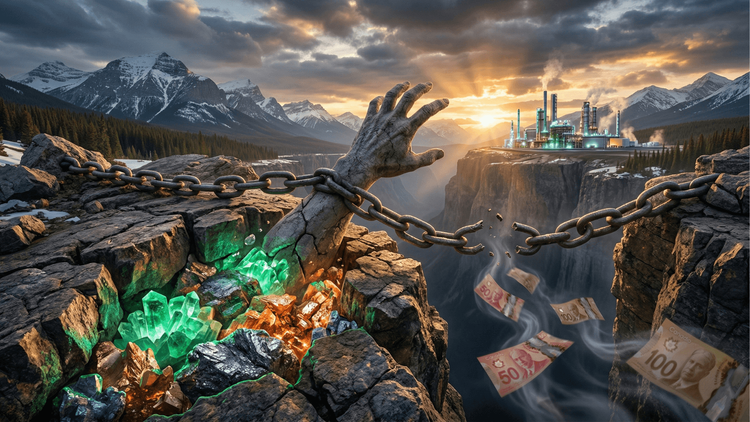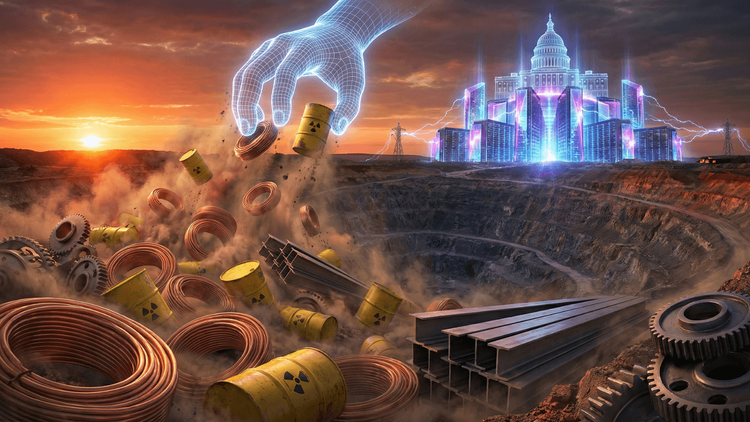Amazon, Google, and Meta: Why They Want More Nuclear Power Than Ever
Tech Titans Champion Nuclear Power as the Future of Clean Energy

Amazon, Google, Meta, and Dow are joining forces with other major energy consumers in a bold initiative to triple global nuclear capacity by 2050. The announcement, made at CERAWeek 2025 in Houston, Texas, underscores a growing consensus among leading corporations that nuclear energy is essential to meeting the world’s rising energy demands while advancing decarbonization efforts.
These companies, alongside Occidental, Allseas, and OSGE, signed the Large Energy Users Pledge, reinforcing commitments made by 31 countries, 140 nuclear industry firms, and 14 major financial institutions. Their collective support sends a powerful signal that nuclear power is not just a viable solution but a necessary component in securing a clean, resilient energy future.
The Urgency Behind the Pledge
With global energy consumption projected to surge due to industrial growth, artificial intelligence, and data centers, traditional renewable energy sources alone may struggle to keep pace. While solar and wind remain vital, they are subject to weather conditions and intermittency challenges. Nuclear energy, however, offers uninterrupted, round-the-clock power, making it a crucial element in stabilizing the energy grid.
The signatories acknowledge that for industries reliant on continuous, high-energy output, nuclear power provides a cost-competitive and dependable alternative. By advocating for equal financial access to nuclear energy, the pledge aims to remove barriers preventing large-scale nuclear deployment.
Statements from Industry Leaders
Lucia Tian, Google’s Head of Clean Energy & Decarbonization Technologies, emphasized the tech giant’s commitment to supporting nuclear power expansion, calling it “pivotal in building a reliable, secure, and sustainable energy future.” She added that Google is working to accelerate the commercialization of advanced nuclear technologies to meet the growing global electricity demand.
Amazon Web Services’ Brandon Oyer reinforced the importance of nuclear power in addressing climate change and national security. He highlighted Amazon’s $1 billion investment in nuclear energy projects over the past year as part of the company’s broader Climate Pledge commitment to achieve net-zero carbon emissions by 2040.
Meta’s Head of Global Energy, Urvi Parekh, echoed these sentiments, emphasizing that nuclear energy is essential for ensuring reliable and resilient power as economies expand. Dow’s Vice President of Energy & Climate Business, Edward Stones, pointed to the role of nuclear energy—particularly advanced small modular reactors (SMRs)—in supporting industrial progress and long-term competitiveness.
The Road to Tripling Nuclear Capacity
The global nuclear industry currently operates 439 reactors, accounting for about 9% of the world’s electricity supply. With energy demand projected to grow at an annual rate of 4%, scaling nuclear capacity will require a combination of government support, financial investments, and regulatory streamlining.
The initiative to triple nuclear power was first introduced by the World Nuclear Association and Emirates Nuclear Energy Corporation ahead of COP28 in 2023. Over the past year, a rising number of energy-intensive companies have explored nuclear power as a solution to their growing electricity needs and carbon reduction goals.
As the world transitions toward a cleaner energy mix, nuclear power is increasingly recognized as the backbone of a stable, low-carbon grid. The support from major corporations strengthens the case for accelerating nuclear deployment, ensuring that future energy demands can be met sustainably and efficiently.
A Turning Point for Global Energy Policy
The Large Energy Users Pledge marks a pivotal moment in the nuclear energy landscape. With backing from influential players across technology, manufacturing, and finance, the movement to expand nuclear power is gaining critical momentum. The challenge now lies in aligning policy frameworks, securing investments, and expediting project timelines to meet the ambitious 2050 target.
If successful, this initiative could reshape the global energy sector, proving that nuclear power is not only viable but indispensable in the quest for a sustainable, high-energy future.






